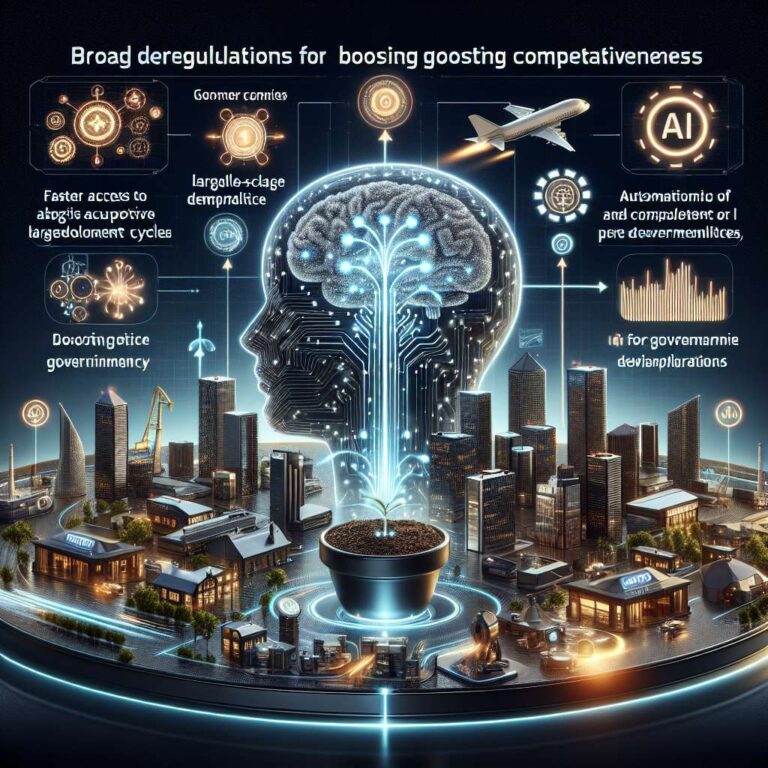The Trump administration has signaled a sweeping deregulatory agenda for generative artificial intelligence, framing loosening rules as a route to economic growth and global competitiveness. The article highlights that David Sacks has been named Artificial Intelligence and cryptocurrency czar to lead the initiative, reflecting a pro-innovation stance that prioritizes cutting regulatory barriers. The administration’s rationale, as presented, is that America must maintain its leadership in Artificial Intelligence by enabling faster deployment across industries.
The piece outlines concrete opportunities from generative artificial intelligence adoption. Companies already using these tools can produce hyper-personalized marketing content, operate chatbots that approximate human interaction, and design product prototypes far faster than traditional processes. It cites a McKinsey study showing productivity gains of up to 45 percent in customer service tasks for firms that integrate generative artificial intelligence. The author argues that in a deregulatory environment the pace of adoption will quicken, creating advantages for early movers who can reduce costs and raise customer satisfaction.
Risks of inaction are emphasized. Businesses that delay integrating generative artificial intelligence may face growing operational gaps as competitors automate workflows and set new customer expectations. The article draws a parallel to prior deregulation efforts during the same administration in industries like energy and finance, suggesting those precedents spurred investment and innovation. As regulatory friction falls, the adoption curve is likely to steepen, making late entry more difficult and costly.
To navigate the change, the author recommends a strategic roadmap: conduct an internal audit to identify high-impact use cases, invest in building in-house Artificial Intelligence literacy through training and vendor partnerships, and pursue collaborations with startups or research institutions. The article notes established ecosystems from firms such as Microsoft and Google as platforms for experimentation at scale. It also stresses that ethical considerations remain crucial even in a deregulated context, and that transparency, bias mitigation, and privacy protections will distinguish responsible leaders.
Drawing on his experience as CEO of Disaster Avoidance Experts, the author describes guiding organizations through generative artificial intelligence implementations, including a regional insurance firm where training and learning and development processes were transformed. The article concludes with a clear call to action: businesses that act decisively can secure growth and leadership in an AI-driven economy, while hesitation risks long-term irrelevance.

